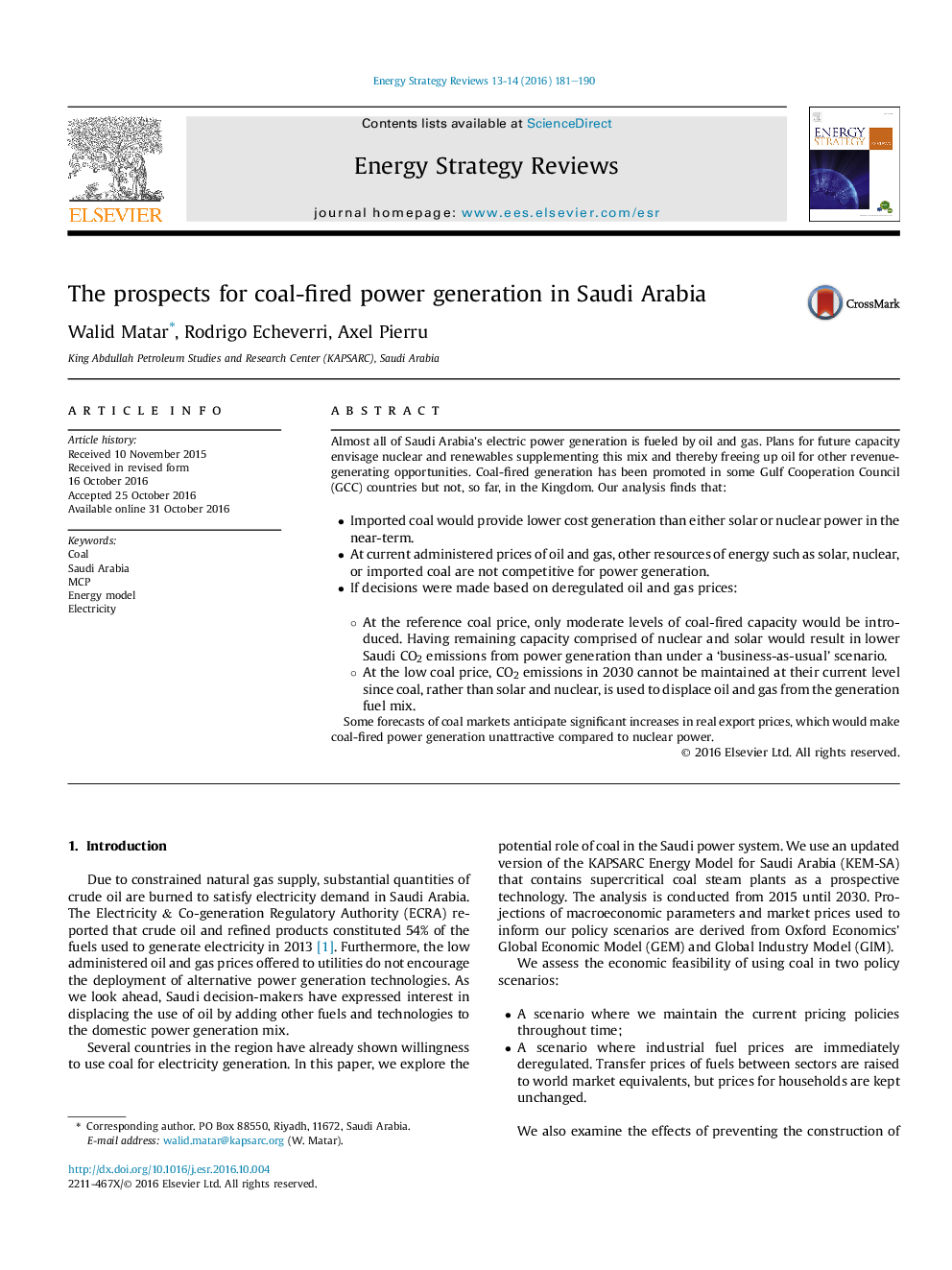| کد مقاله | کد نشریه | سال انتشار | مقاله انگلیسی | نسخه تمام متن |
|---|---|---|---|---|
| 6481314 | 1483526 | 2016 | 10 صفحه PDF | دانلود رایگان |
- A dynamic multi-sector equilibrium model is utilized.
- Coal-fired and renewable power plants cannot compete at the local 2015 fuel price.
- Some coal-fired capacity is built under deregulated fuels and reference coal prices.
- CO2 emissions for different coal use scenarios for power generation are quantified.
- The economic benefit of using coal over renewables and nuclear is negligible.
Almost all of Saudi Arabia's electric power generation is fueled by oil and gas. Plans for future capacity envisage nuclear and renewables supplementing this mix and thereby freeing up oil for other revenue-generating opportunities. Coal-fired generation has been promoted in some Gulf Cooperation Council (GCC) countries but not, so far, in the Kingdom. Our analysis finds that:
- Imported coal would provide lower cost generation than either solar or nuclear power in the near-term.
- At current administered prices of oil and gas, other resources of energy such as solar, nuclear, or imported coal are not competitive for power generation.
- If decisions were made based on deregulated oil and gas prices:âAt the reference coal price, only moderate levels of coal-fired capacity would be introduced. Having remaining capacity comprised of nuclear and solar would result in lower Saudi CO2 emissions from power generation than under a 'business-as-usual' scenario.âAt the low coal price, CO2 emissions in 2030 cannot be maintained at their current level since coal, rather than solar and nuclear, is used to displace oil and gas from the generation fuel mix.Some forecasts of coal markets anticipate significant increases in real export prices, which would make coal-fired power generation unattractive compared to nuclear power.
Journal: Energy Strategy Reviews - Volumes 13â14, November 2016, Pages 181-190
